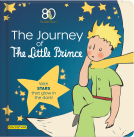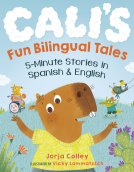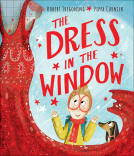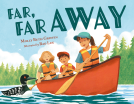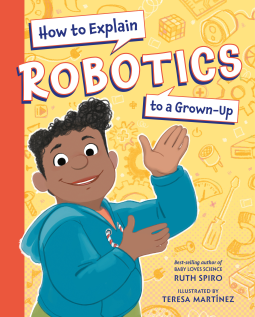
How to Explain Robotics to a Grown-Up
by Ruth Spiro
This title was previously available on NetGalley and is now archived.
Send NetGalley books directly to your Kindle or Kindle app
1
To read on a Kindle or Kindle app, please add kindle@netgalley.com as an approved email address to receive files in your Amazon account. Click here for step-by-step instructions.
2
Also find your Kindle email address within your Amazon account, and enter it here.
Pub Date Sep 17 2024 | Archive Date Sep 17 2024
Talking about this book? Use #HowtoExplainRoboticstoaGrownUp #NetGalley. More hashtag tips!
Description
Do you want to know a secret? Sometimes grown-ups need YOU to explain things to THEM. Like robotics!
In this tongue-in-cheek guide, an in-the-know narrator instructs kid readers in the fine art of explaining robotics to a grown-up. Both children and their adults learn:
- what makes a robot a robot,
- who designs and builds robots,
- and how robots work on their own to get a job done.
Fun and fact-filled, the How to Explain Science series will empower kid experts to explore complex scientific concepts with any grown-up who will listen.
Available Editions
| EDITION | Other Format |
| ISBN | 9781623543198 |
| PRICE | $17.99 (USD) |
| PAGES | 32 |
Available on NetGalley
Featured Reviews
 Lisa D, Reviewer
Lisa D, Reviewer
What a great book! Kids can learn about robotics and how to explain the concepts to others, including their grownups. Robotics is an important current topic and one that kids can benefit from learning about early. This picture book shows different ways people can be involved in working in the field. I highly recommend this for young readers so they can learn about robotics and so they can learn to feel confident explaining what they know. Thanks to NetGalley for letting me read this
An approachable title for kids empowering them to share their knowledge about robotics. I liked the repetitive nature of the three things needed to make something a robot, which made this book very educational with a key takeaway.
How to Explain Robotics to a Grown-Up is a cute resource for introductory robotics. Under the guise of "teaching the adults" this book explains what robots are, parts of a robot (sensor, microcontroller, circuits, actuator, end effector, and power supply), and the robotic process (sense, compute, act). There is also a helpful glossary at the end of the book. The information inside is great for giving students a very simplistic introduction to robotics.
As a STEAM teacher, this will be a great book to include in my classroom.
 Jan T, Reviewer
Jan T, Reviewer
Teaching is the best way to solidify learning, and what better way than to reverse roles with a parent or other adult to maximize that effect! Sometime the kids have a better handle on something like robotics than their adults (my grands in Cleveland!) but both can learn something from this method which combines the knowledge of each to make a more memorable experience. I love the styling of this book as it is non-threatening to either party. Good job! Thanks, too, that the grown-up depicted uses a wheelchair for mobility.
The illustrations by Teresa Martinez are to delightful, imaginative, meaningful, and vividly colorful.
Well suited for reading WITH someone of any age including ESL, and great for gifting to anyone, but especially to a school or public library!
I requested and received a free temporary e-book on Adobe Digital Editions from Charlesbridge via NetGalley. Thank you!
Book 2 of How to Explain Science
 Jennifer S, Librarian
Jennifer S, Librarian
Ruth Spiro is an expert at using "kid-friendly" language and storytelling to inform young readers (and their parents) on scientific topics. How to Explain Robotics to a Grown-Up uses authentic vocabulary paired with rhythmic and repetitive phrases that make sense. Teresa Martinez pens friendly-looking, diverse characters that appeal to the reader.
The glossary and endnotes give further information for families and/or teachers, so reading together is encouraged.
I especially love Ms. Spiro's dedication. A personal, sweet tribute.
Thank you for allowing me to read. I cannot wait to own this book.
 Erin W, Educator
Erin W, Educator
This is the first How to Explain Science to a Grown-Up book I've read and I'm so happy I found the series! The super popular graphic novel format will keep kids engaged and the repetition and reinforcement of the key points of robotics will prepare them to truly be able to explain it to their grown-ups. Teaching is one of the best ways to learn and How to Explain Robotics gives students the knowledge and confidence to be able to teach it to their grown-ups or peers- I certainly learned a lot and it never felt like work. After reading this book, I'm sure students will start noticing the robots all around them and considering the ways they could use robotics in their own lives. I will be buying this for my elementary library and expect to collect them all.
 Reviewer 1394760
Reviewer 1394760
This book offers accessible information about robotics, making the topic easy to understand by a wide range of readers/audiences.
But can we speak about the fonts/typeface, the design and the illustrations? They are top notch! When we encounter such quality, we wish to see it everywhere. Amazing.
 Librarian 1111612
Librarian 1111612
A good book that gives advice to children on how to explain robotics to adults. It allows the reader to work the materials so they can then teach it to adults. The book has a lot of big vocab words that may be difficult for children to understand but it allows them to become familiar with the terms that are associated with robotics.
